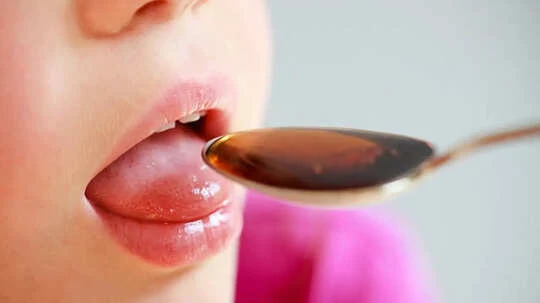India’s top neurologist, Dr Sudhir Kumar, has said children do not need to be given cough syrups for cold and cough infection, as “they don’t speed up recovery.” According to Dr Kumar, most of the coughs in children are caused by viral infections that settle on their own in a week or so.
“Cough syrups do not cure or shorten these illnesses. Ingredients like antihistamines, decongestants, and codeine may cause side effects such as drowsiness, irregular heartbeat, or even breathing problems,” he wrote on the social media website X.
Dr Kumar’s observation came as at least 14 children have died across Madhya Pradesh after taking adulterated syrup – Coldrif. Two kids in Rajasthan also lost their lives as they fell sick after drinking the same syrup over the last week. The state government has ordered a special enquiry into the incident, while a doctor has been arrested in MP for prescribing the medicine to young patients.
What is the underlying cause of these deaths?
While investigations say many of the deaths happened due to contamination with toxic chemicals – diethylene glycol (DEG) or ethylene glycol (EG) – both of these substances, sometimes even used in place of pharmaceutical-grade solvents, are highly toxic and poisonous. Even small amounts can damage the kidneys and lead to death, especially in children.
If the medicines get contaminated with DEG or EG, they can lead to symptoms like nausea, vomiting, confusion, Kidney failure due to toxic metabolites, Severe metabolic acidosis, seizures, coma, and death.
What should the parents do?
According to Dr Kumar, “cough syrups are rarely needed for children. They don’t speed up recovery.” He also urges the parents to be aware that adulterated and contaminated products are being sold freely in the market and to only buy medicines from trusted, regulated sources.
“If a child develops vomiting, confusion, or reduced urination after taking a syrup, seek urgent medical care. Kidney injury from toxin exposure can be life-threatening but is treatable if diagnosed early,” he added.
Also, Dr Kumar stressed the need to follow natural ways to get over uncomfortable and chronic colds and coughs among kids, which include warm fluids, honey, saline nasal drops, and lots of rest.
What are counterfeit and fake drugs?
Fake drugs are manufactured and packaged to look like legitimate brand-name medications, but mostly contain little to no of the active ingredients that are listed on the label. Fake drugs in the illicit supply chain pose a serious potential risk to patients’ health.
In many cases, these fake drugs do not provide the needed therapeutic value as they may lack the active ingredients. In the worst case, some contain dangerous products. Experts say many fake medicines also contain mercury, arsenic, rat poison, or cement.”
Consuming counterfeit drugs can have serious consequences for individuals, communities, and overall global public health. According to the World Health Organization (WHO), one of every 10 medicines fails in low- and middle-income countries because they are substandard or falsified.
